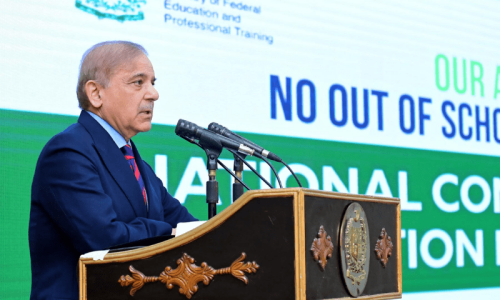RECENTLY, the Supreme Court took up the case of a disabled woman fighting for the custody of her child in Peshawar. Previously, the Peshawar High Court had set aside the decision of a family judge to grant custody of the child to the mother. Now, having overturned the high court’s decision, the apex court rightly pointed out that the mother’s disability did not impair her from carrying out her duties, and even condemned its mention in the high court’s verdict in the first place as being inherently discriminatory. The Supreme Court judges ordered that the child be handed over to his mother within a week. Their judgement and the concerns they raised are humane and recognise that the mother’s role is central to a child’s upbringing, regardless of any handicap, since disability does not diminish a mother’s status or her commitment to taking care of her child. She is not merely an agent of giving the child life and nourishment in the beginning of his existence, but also looks after his emotional well-being throughout his formative years. Furthermore, if women with disabilities are deemed incapable of participating in decision-making within their homes, or caring for their own families, what would their standing be in the public sphere? Pakistani women’s mobility is already restricted, and it is even more difficult for women with disabilities to overcome obstacles placed in their path at each turn, but this does not mean they should be denied their rights or a chance at personal fulfilment.
People with disabilities already face an uphill battle for income, respect and dignity. Stigma follows them throughout their lives, and even well-meaning gestures can come across as patronising, if society does not genuinely understand the concept of equality. According to UN estimates, approximately 15pc of the world’s population lives with some form of disability, which is defined as “long-term physical, mental, intellectual or sensory impairments which … may hinder ... full and effective participation in society”. Despite signing the UN Convention on the Rights of Persons with Disabilities, and having passed several laws to improve the welfare of the differently abled, while increasing their opportunities for employment, there is much more that needs to be done to ensure a more level playing field. If a person with disabilities is unable to reach their potential, it is not a personal failing, but a failure on the part of state and society.
Published in Dawn, July 26th, 2020









































